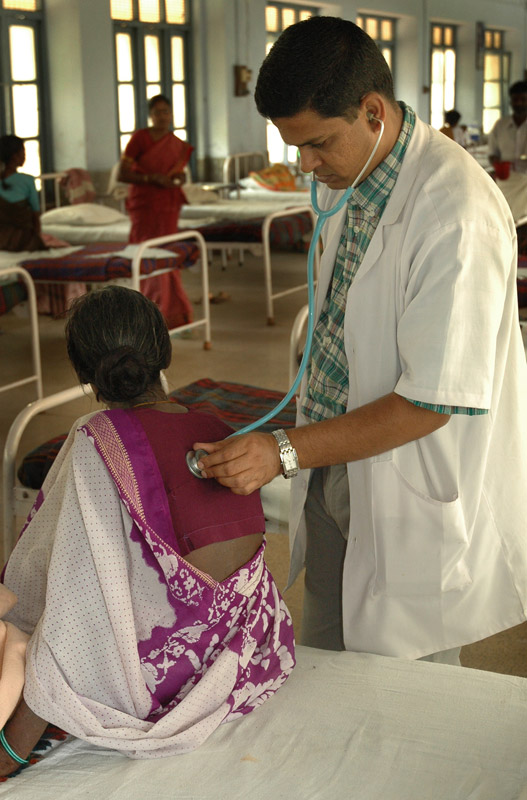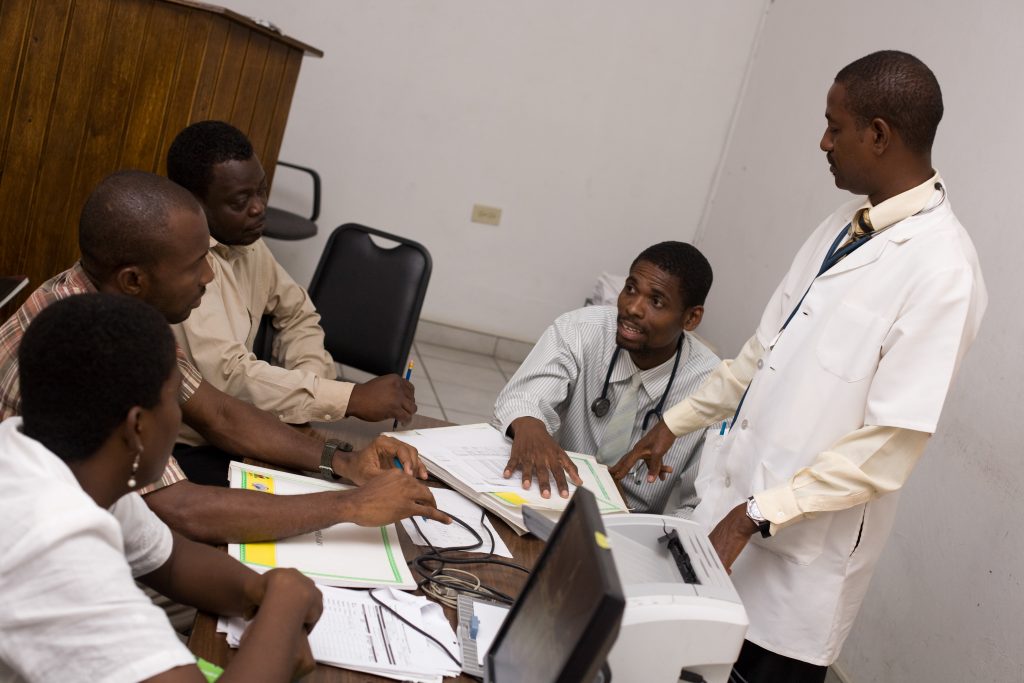
In spring 2018, the International Training and Education Center for Health (I-TECH) made University of Washington (UW) history when two of its country offices transitioned into independent organizations. I-TECH’s office in India is now the independently run I-TECH India, and its former office in Haiti now operates as CHARESS (Centre Haïtien pour le Renforcement du Système de Santé). Both organizations are sub-contractors on current I-TECH awards.
“With the India and Haiti I-TECH office transition to a local identity, we are applying what we already know about transition to creating new relationships with these independent entities,” says Dr. Ann Downer, I-TECH Executive Director and Professor in the UW Department of Global Health. “To help ensure long-term sustainability, we are working together on business plans and mapping out strategic priorities and mutual interests. This transition has intensified our partnership rather than creating distance.”
A roadmap for the university
I-TECH has worked closely with UW Global Operations Support over the past decade to inform the internal procedures and structures necessary for international office registrations. According to Doug Divine, Director of UW Global Operations Support, this work has promoted operational effectiveness by enabling a safe, compliant, and legal environment for conducting international work.
“I-TECH has been our key partner in the justification and implementation of these registrations, establishing 11 of the 15 entities registered abroad,” says Divine. “It has been so rewarding to have partnered with I-TECH on such an innovative administrative approach. Seeing these registrations become fully functioning independent entities not only fulfills a key mission of I-TECH to help establish sustained capacity where it is needed most, but also reflects the commitment of the UW community toward international engagement.
I-TECH’s close work with Global Operations Support has also prepared I-TECH India and CHARESS for success, helping to create the administrative and policy structures necessary for them to more easily fledge.
New opportunities

The transition of the India and Haiti offices marks new territory in I-TECH’s move toward country ownership, allowing in-country teams to simplify administration and explore funding opportunities that weren’t available to them as UW entities.
The I-TECH India team looks forward to these new opportunities. “This really opens doors to new things,” says Dr. Anwar Parvez Sayed, Clinical Programs Director for I-TECH India. “We were previously looked at as a foreign entity, and we can now apply for local grants.”
I-TECH India has provided technical assistance to 10 Indian Centers of Excellence (CoE) on HIV/AIDS since 2003. In the years ahead, it will continue to support a complete array of educational services and technical assistance to the CoE network in India, plus an additional seven pediatric sites, called pCoE.
“We will now be complying with local Indian regulations, which simplifies things,” says Madhuri Mukherjee, Country Representative of I-TECH India. “Though we no longer have the layer of Washington State and federal compliance, we will remain closely aligned with I-TECH’s and UW’s missions. It’s beneficial from both sides to maintain a close relationship.”
In fact, I-TECH India and CHARESS will each have a memorandum of understanding (MOU) with I-TECH/University of Washington. Each MOU will underscore the organization’s shared history with I-TECH and outline elements of an ongoing commitment — including being preferred partners on new funding opportunities.
In Haiti, CHARESS will continue to maintain, train, and deploy health information systems (HIS) such as iSantéPlus and the Système d’Echange d’Information de Santé d’Haïti (SEDISH), a national health information exchange. It will also ensure that the national sites for both receive on-site and remote technical assistance. In addition, the team will oversee clinical mentoring activities at 20 sites and provide technical assistance to the Ministry of Public Health and Population and other implementing partners in Haiti.
“As CHARESS, we look forward to continuing the programming that we have been so proud of,” remarks Dr. Jean-Guy Honoré, CHARESS Executive Director. “Our HIS work, in particular, has had a real impact in Haiti, and our new local status will allow CHARESS to pursue even more opportunities to become a global leader.”
An updated vision of sustainability
In its 16 years of operation, I-TECH’s ultimate goal has always been to strengthen local capacity and to help build sustainable health systems. To that end, I-TECH’s direct service and technical assistance programs are tailored from the initial planning stage to produce projects that can be successfully absorbed into national systems. Its main partner in this endeavor is always the local Ministry of Health.
At the International AIDS Society conference this year in Amsterdam, Dr. Downer presented recently completed research on six transitioned I-TECH programs (of more than 350 that have transitioned), exploring the degree to which investments had been sustained by local partners, as well as identifying the key elements of successful transition.
I-TECH’s experience with transition to local ownership and long-term sustainability of interventions aligns with those presented by Vogus and Graff (PEPFAR Transitions to Country Ownership, June 2015), including the need to plan for:
- Communication of transition strategies through high level diplomacy;
- Stakeholder participation in transition planning;
- Government support of the plan, including alignment with local government policies, practices, and salaries;
- Use of planning tools (i.e., a roadmap); and
- Adapting approaches to the local context during transition.
“In addition to the known characteristics of successful transition of projects to local ownership, I-TECH has found that we also need to identify a champion within local government to advocate long-term for the adopted interventions,” says Dr. Downer. “We also need to plan intentionally for how much and what type of technical assistance or short-term funding will be needed in order to ensure sustainability.”
Doug Divine sees massive benefits at each stage of I-TECH’s country office relationships, from registration to independence. “Without I-TECH and the projects it has spearheaded, I’m not sure UW would have made the advancements it has made on the international front,” he says. “I-TECH had the vision, the infrastructure need, and the boots on the ground — which gave us impetus to set up structures for the rest of the university. Other departments can now leverage those resources, and now the spin-off offices fulfill our commitment to allow these structures to grow in their own context.”